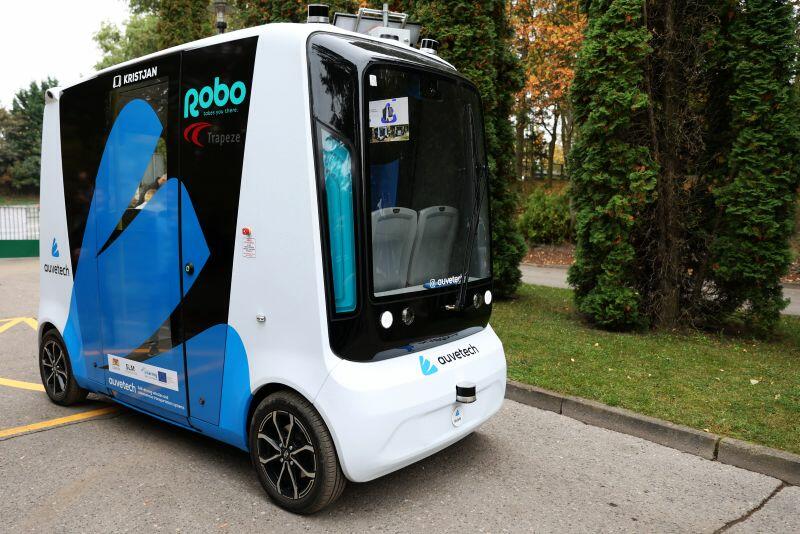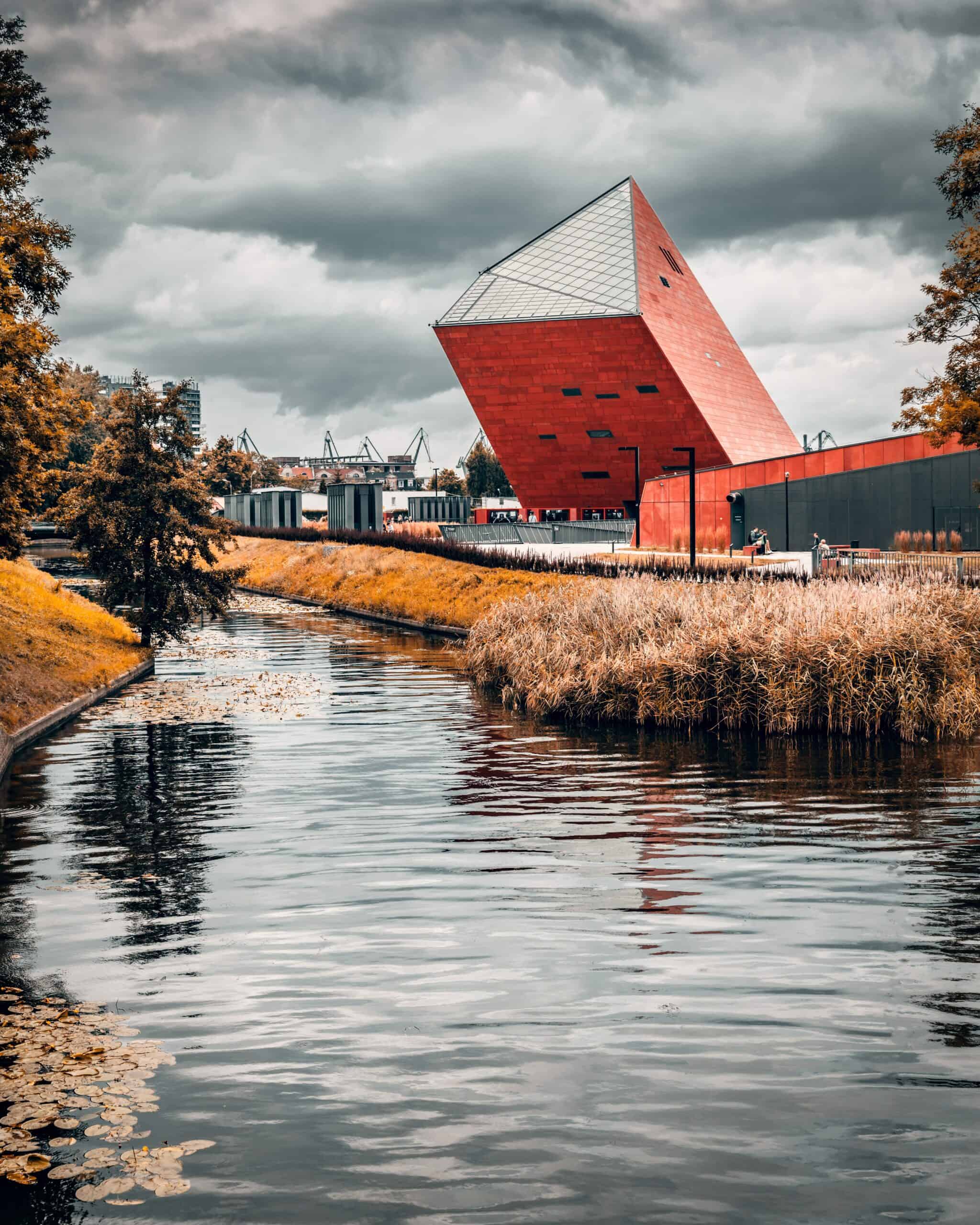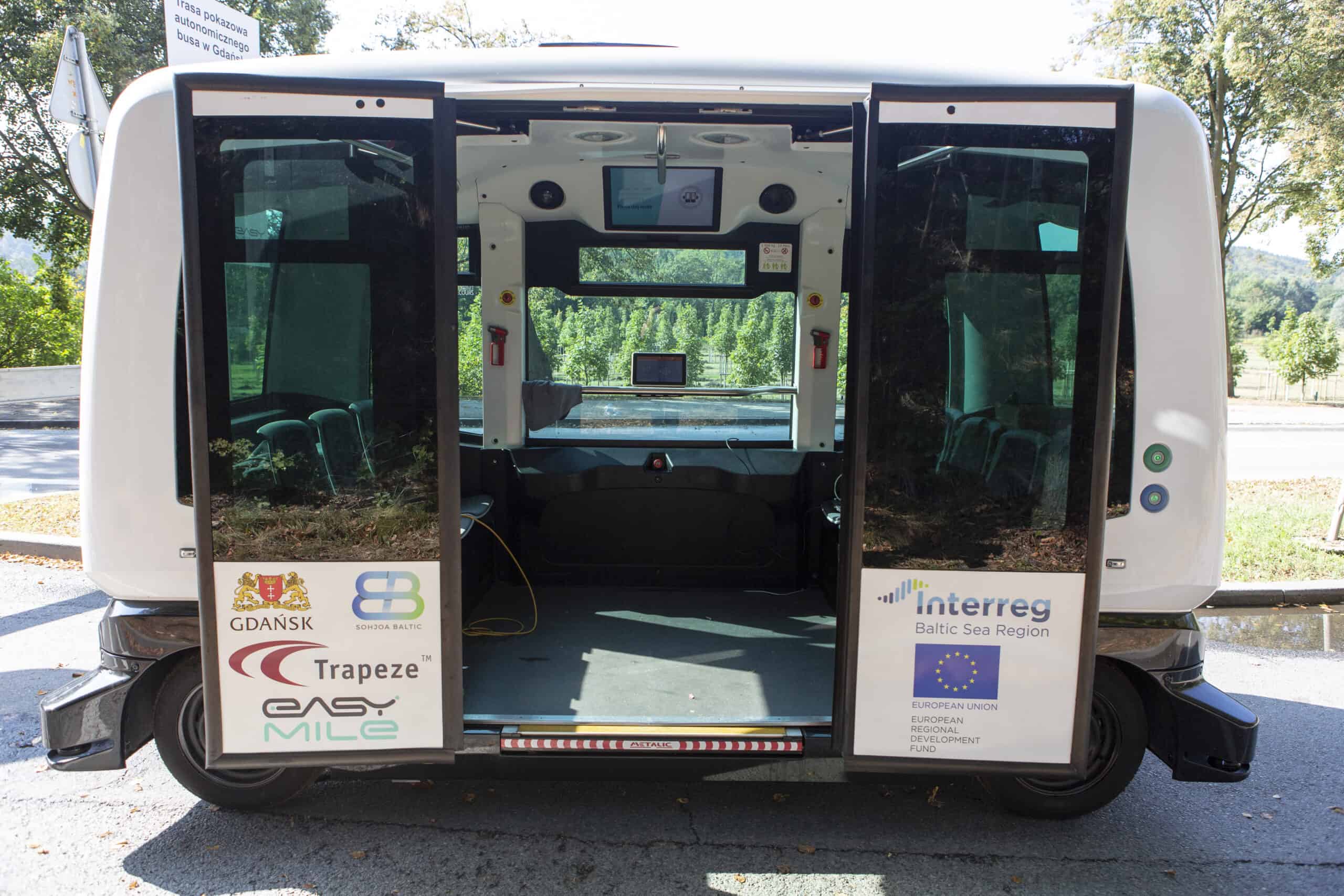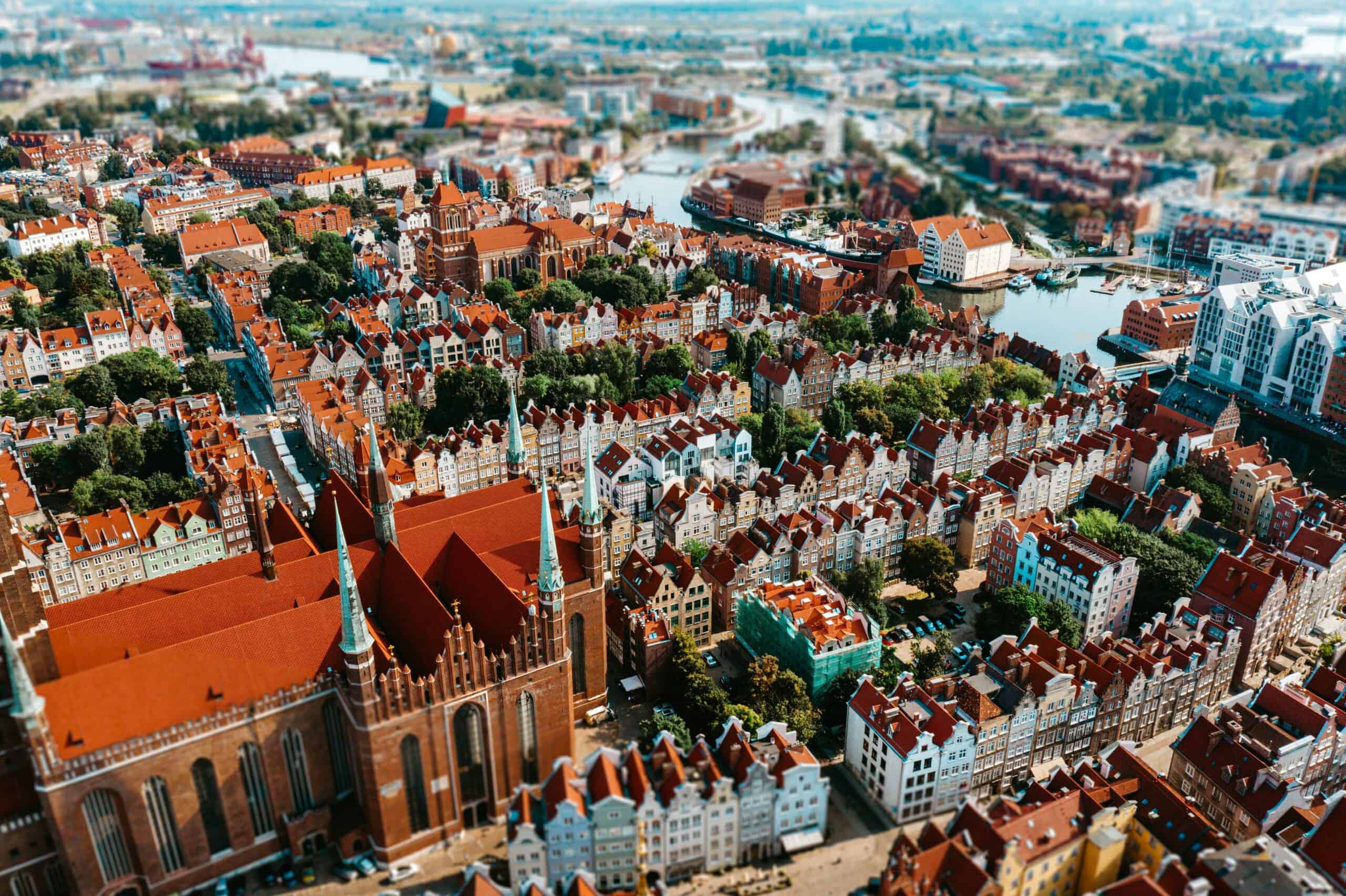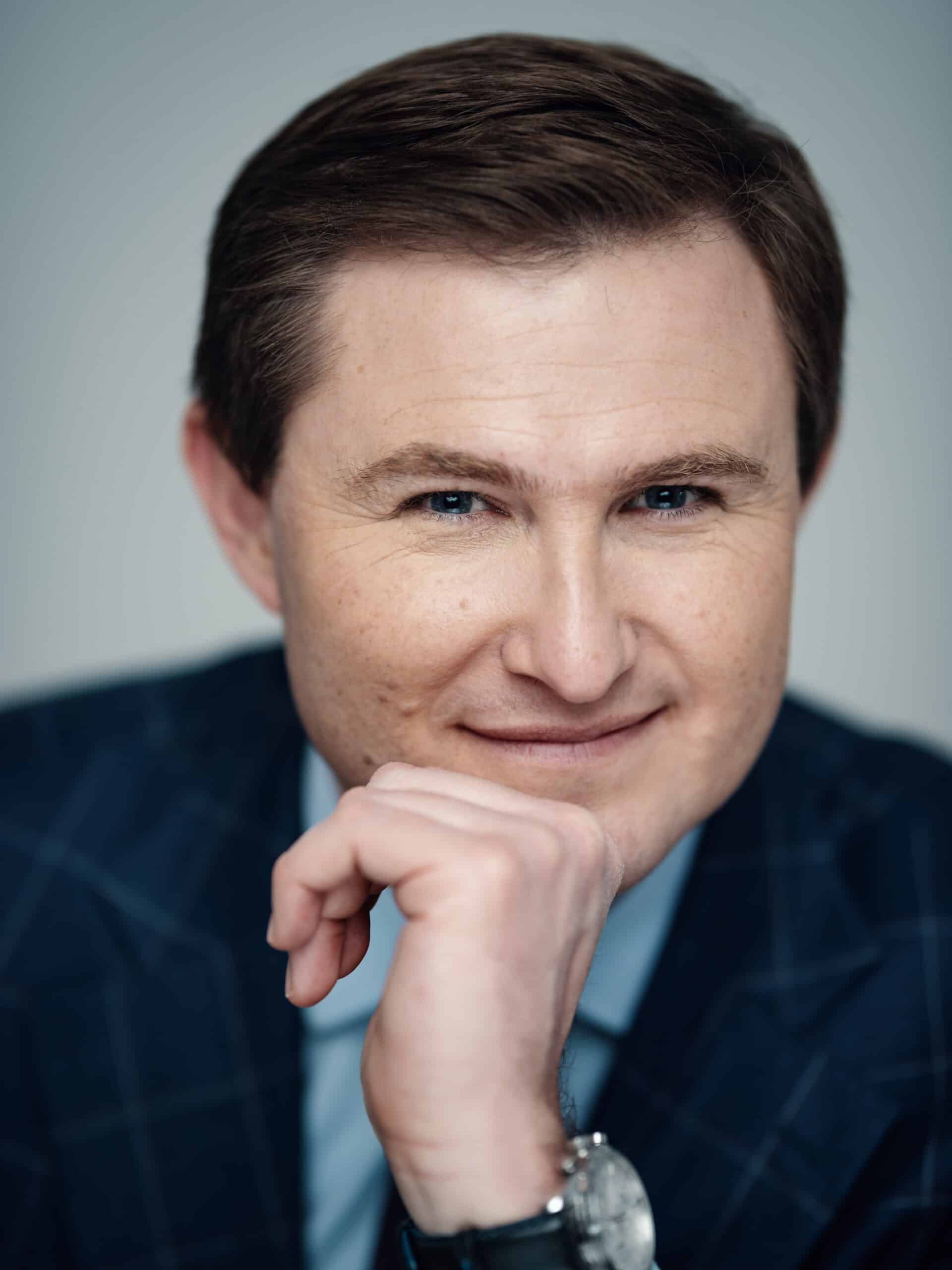
17 February 2022
“We tested innovative green technologies that would not have been affordable otherwise.”
Interview with the Deputy Mayor of Gdansk.
Written by Luca Arfini
Thanks to Interreg, Gdansk advanced innovative solutions to green its transport system and introduce the first autonomous local bus line in Poland. Piotr Grzelak, Gdansk’s Deputy Mayor, will guide us on what the city achieved by joining transnational projects funded by Interreg Baltic Sea Region.
Like Gdansk, several cities, municipalities, and regions across the Baltic Sea have actively made use of transnational cooperation to make their community more sustainable and innovative. Get inspired by Deputy Mayor Piotr Grzelak on how to make the difference regionally and locally with the European Regional Development Funds through Interreg.
#DidYouKnow
In the years 2014-2020, more than €250 million were allocated to around 200 transnational Interreg projects in the Baltic Sea region. The city of Gdansk took part in six of them: BSR electric, cities.multimodal, GreenSAM, NonHazCity, Sohjoa Baltic and Sohjoa Last Mile.
How did the City of Gdansk and its citizens benefit from transnational cooperation?
Thanks to international cooperation in Interreg Baltic Sea Region Programme, the city and its residents benefited from the know-how of the universities and municipalities on different sustainable transport solutions, including automated public transport. Besides automated last-mile mobility, the city cooperated with other actors from the region, promoting active mobility modes and multimodal solutions. International cooperation and exchange of experience allow a city to learn from the mistakes of others. It also provides arguments for the implementation of smart and innovative solutions.
What has the City of Gdansk achieved thanks to Interreg Baltic Sea Region projects that ‘couldn’t have been done otherwise?
Without being able to use the knowledge, experience, and data gathered by project partners and without high-level funding, the city would not have been able to pilot the complex and expensive technology of autonomous last-mile transport. In 2019, within the framework of the Sohjoa Baltic project, Gdansk launched the first autonomous bus line in Poland and managed to raise awareness of possible transport automatisation amongst residents and decision-makers. 3325 people took the ride and the event was a success. Two years later, as part of the Sohjoa Last Mile project, we were able to go a step further and, in piloting an autonomous bus in a closed area, test the possibilities of remote monitoring, remote control and service provision without an operator on board the vehicle. The second pilot was also the first-ever automated transport option launched at the cemetery to support the mobility needs of visitors to the largest cemetery in Gdansk. 2017 people tested the service during the project.
The City of Gdansk has been involved in projects dealing with green mobility; can you give a few practical examples of what your citizens gained thanks to these Interreg projects?
The projects brought knowledge on organising environmentally friendly and smart automated public transport. It also provided guidelines on the legal and organisational setup needed for running such a service in an efficient way. Thanks to both Sohjoa projects the city offered residents the opportunity to learn about possible transport solutions that would eventually support them on the first or last mile of their trips. However, before we started to explore the possibilities of autonomous last-mile transport, in the framework of other projects co-financed from the Interreg BSR Programme we focused primarily on the promotion of active forms of mobility.
Within the framework of the abc.multimodal project (funded by Interreg South Baltic), we organised cycling events and installed bicycle counters in places with a high density of cycling traffic. Later, in the cities.multimodal we defined a pilot area and we worked towards improving the conditions to easily and smoothly combine walking, cycling, the use of public transport and shared mobility as a more sustainable alternative to individual private car use.
In the project “GreenSAM – Green Silver Age Mobility”, we stimulated active mobility of the elderly by identifying the barriers, cooperating with the Senior Citizens Council of Gdansk and organising cycling tours while providing the participants with tricycles.
Within the framework of the BSR electric project, we promoted electrically assisted bicycles for daily mobility and for business trips. We also carried out an analysis of the possibility of establishing a ferry connection in the area of Gdansk, using a unit powered by electricity.
Within the framework of the Sohja Baltic project, Gdansk became the first city in Poland to launch an autonomous bus pilot and the first autonomous bus line. What will happen now that the project has ended? How will these achievements be used in the future?
We are currently closely following the development of technology, legislation related to transport automation and last-mile autonomous public transport services. In 2020, the city adopted a Strategy for Electromobility Development until 2035, in which one of the planned actions is the operational testing and use of driverless autonomous buses.
As part of both Sohjoa projects, we also commissioned relevant legal studies. The first study, prepared as part of Sohjoa Baltic, answered the question of how to pilot a bus on a public road. The second study, which has just been realised as part of the Sohjoa Last Mile project, answers the question of which regulations are missing or which ones prevent the regular provision of public transport services using driverless vehicles. Now, as part of building the legacy of the project and disseminating the knowledge gained, we will make the analysis available to institutions involved in the legislative process at the national and European levels.
We also intend to join the Connected, Cooperative, and Automated Mobility Association, which focuses on coordinating research and innovation activities in this field at the international level. As a member, the city will gain the opportunity to exchange experiences in the field of connected, cooperative, and automated mobility within the European Research Area and with other local authorities. Membership in the association also offers the possibility of forming project consortia and jointly applying for available funding sources.
The new Interreg Baltic Sea Region Programme 2021-2027 will soon offer new funding for innovative, water-smart, and climate-neutral solutions developed transnationally for the benefit of the whole region. Which new topics do you find particularly interesting for Gdansk? Why?
We are keen on implementing projects that are improving conditions for pedestrian and bicycle traffic, increasing the attractiveness of public transport, improving internal and external transport accessibility as well as promoting sustainable transport and active mobility. To sum up, we would be interested in all actions leading to the development of the multimodal and climate-neutral transport network for both people and goods, which would virtually eliminate the need for private cars for everyday travel and the transport of goods.
If you were to encourage other municipalities to join Interreg projects as partners, what would you say?
The Interreg Baltic Sea Region Programme with a high co-financing rate gives a chance to test new innovative technology and sustainable development solutions that might not be affordable otherwise. It is also a chance to exchange new ideas and know-how and learn from more experienced project partners. Within the framework of the project, it is also possible to organise, for instance, study tours for decision-makers involved in transport and mobility. The benefits include motivation for achieving a shift in modal split towards more sustainable means of transport and increased confidence in future decisions around mobility. Finally, the municipalities can benefit from a wider promotion of their activities.
#DidYouKnow
In the next years, Interreg Baltic Sea Region will keep supporting projects having a positive impact on the residents of the region, if you have a smart or green idea and want to receive funding for it check our gateway for applicants, where you will find all the information on our next call.
More recent news
Grand results of the first round of small projects!
Despite the winter scenery, the results of 17 finalised Interreg Baltic Sea Region projects are in full bloom! And behind them lie two years of intensive work across borders, mutual learning and inspiration, and connections that last.
Climate-neutral future at hand for Baltic Sea region cities
Turning a city into a climate-neutral one requires knowledgeable people, thorough planning and solid financial resources. But how can cities manage this transition smoothly? The Interreg project Climate-4-Case guides cities around the Baltic Sea on how to do that right.
Designing Interreg Baltic Sea Region that belongs to everyone
10 December 2025 Designing Interreg Baltic Sea Region that belongs to everyone Written by Eeva Rantama What if the next Interreg Baltic Sea Region...
Monitoring the Programme’s progress: transnational cooperation in the making
Representatives from nine Programme area countries gathered in Berlin on 19-20 November 2025 to review the progress of the Programme’s implementation and start preparing for the post-2027 period.



